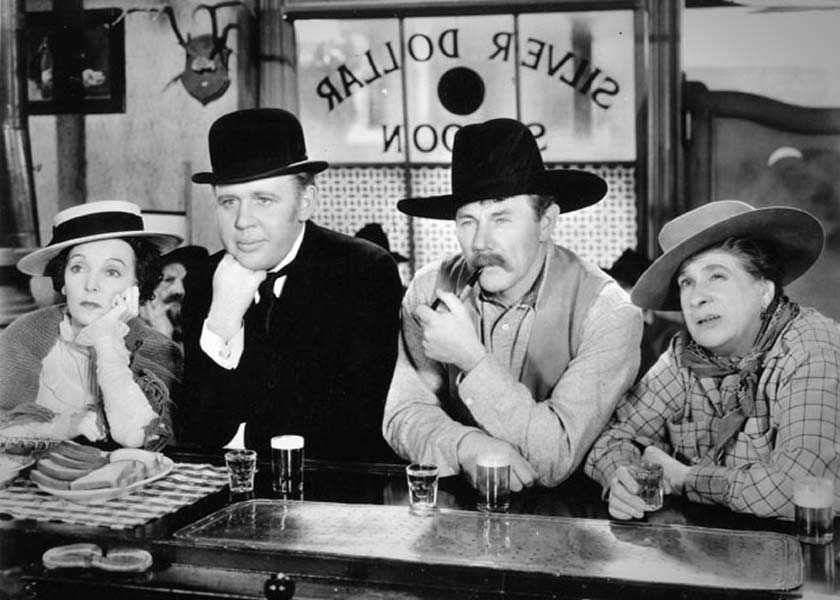Synopsis
In London, in a card game with a rich, but uncouth, Westerner named Egbert Floud (Ruggles), an earl (Young) loses his very proper manservant, Ruggles (Laughton). Egbert's society-conscious wife Effie (Boland) hopes that Ruggles will be able to her husband's manners. After traveling to the Egbert's home in Red Gap, Washington, Ruggles confronts the classless society of the American West. In a saloon with the other citizens of Red Gap, a discussion of social equality leads Ruggles to recite the Gettysburg address to the surprise and admiration of all. When the earl arrives to reclaim his servant, Ruggles realizes that he is now his own man and decides to stay and open a restaurant in Red Gap.
Discussion
Harry Leon Wilson's story of Ruggles, the proper English valet transplanted to the wild west, was serialized in The Saturday Evening Post in 1914, published as a novel in 1915, and produced as a Broadway musical in 1915-16. Filmed adaptations include a 1923 silent starring Edward Everett Horton, the 1935 Laughton version, and a 1957 television musical starring Michael Redgrave. Although the Laughton film is the best-known version, the novel and an audio recording of the television musical are also readily available.
Charles Laughton's portrayal of the timid Ruggles represents a complete change from the psychopaths and tyrants he frequently played. His subdued performance is the opposite of his showy performance as the demented Dr. Moreau in Island of Lost Souls, for example, though no less effective.
TCM Film Festival, 2013
Ruggles of Red Gap was presented in the
Journeys of Self Discovery
theme at the TCM Classic Film Festival in 2013.
The film was discussed by 98-year-old actor-producer-director Norman Lloyd and
film critic Todd McCarthy. Lloyd told some stories illustrating Laughton's
approach to acting. He was resolute that his performance was true to the character
he was playing. Lloyd and Laughton met during the filming of
Arch of Triumph (1948). The first morning, over a bottle of Scotch
whiskey, they discussed the script. To understand the mind of his character,
Laughton, who was playing a Nazi, asked for a copy of Mein Kampf.
Laughton even added a sentence from the book to the script. In
Ruggles of Red Gap, he was particularly concerned that his
performance of the Gettysburg address was well received.
Further Reading

